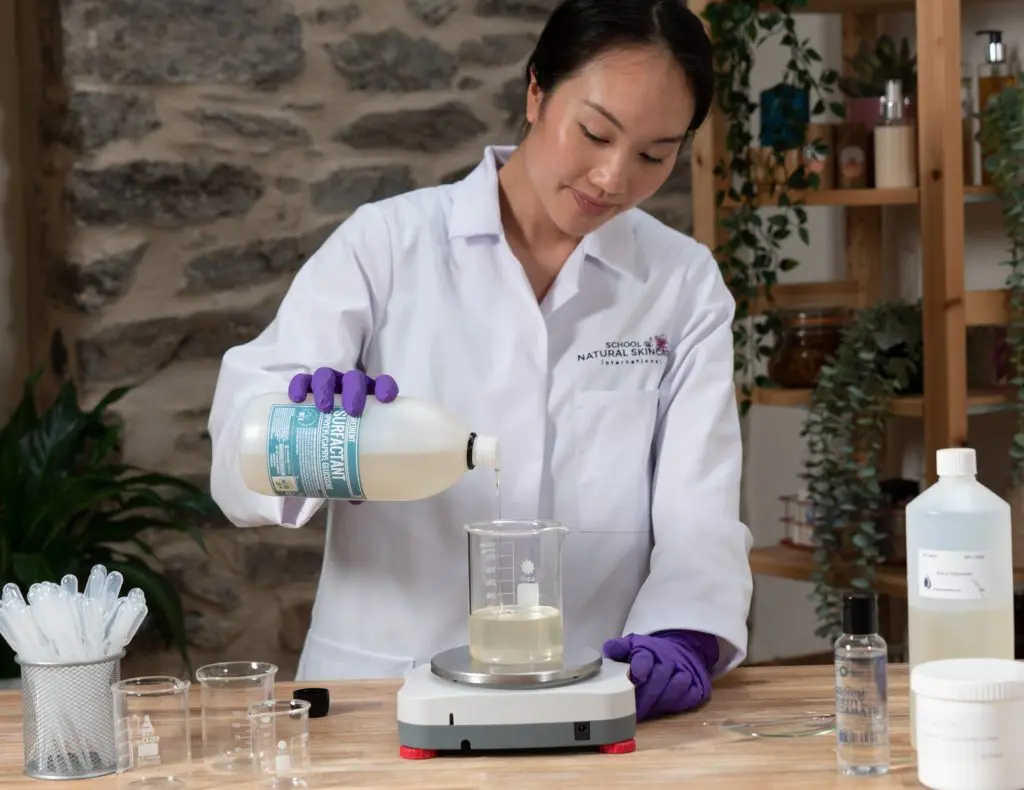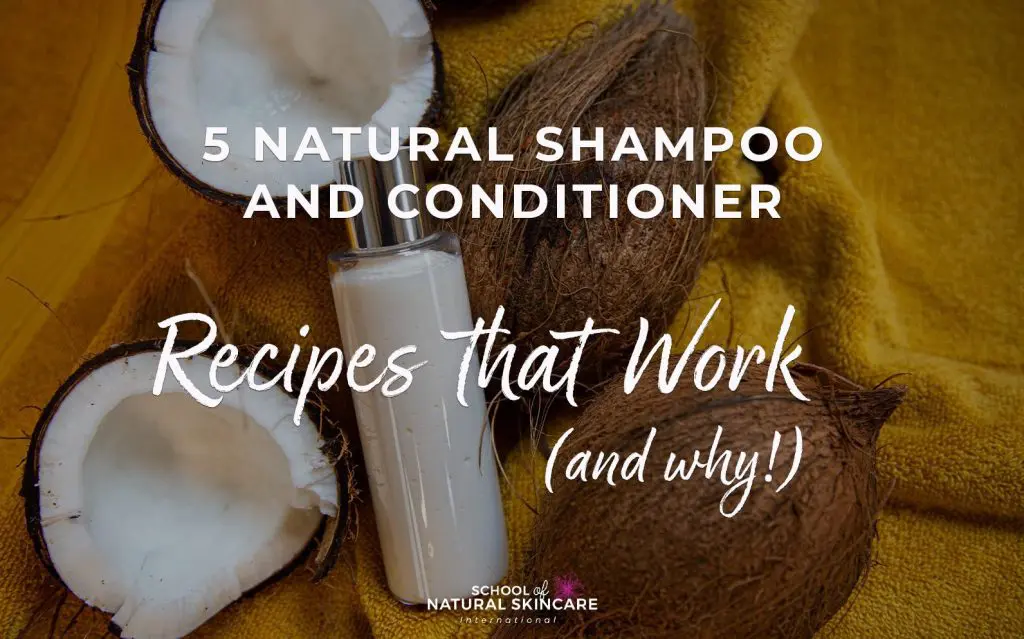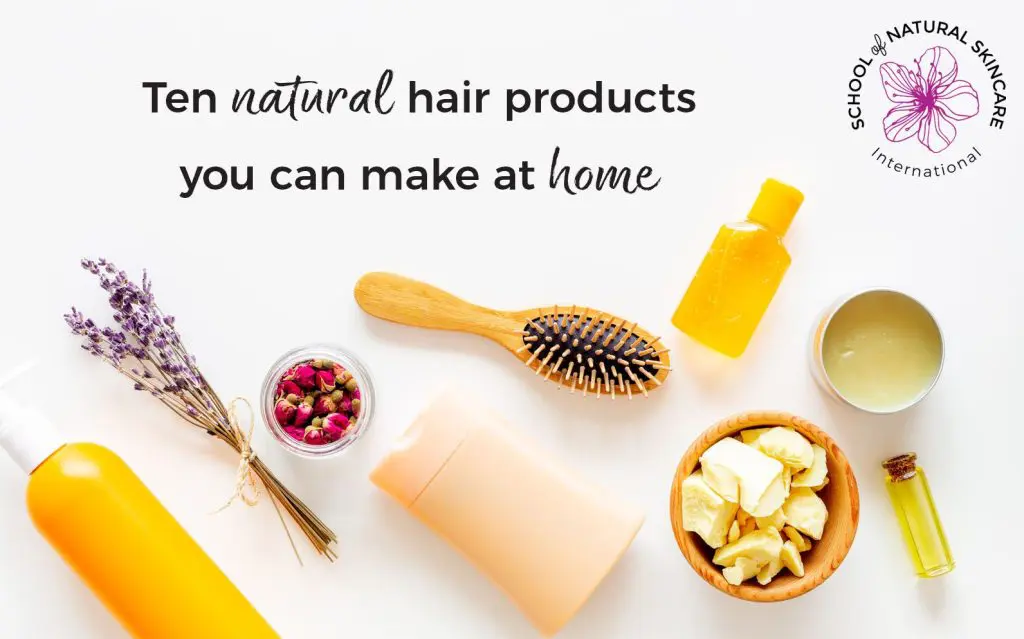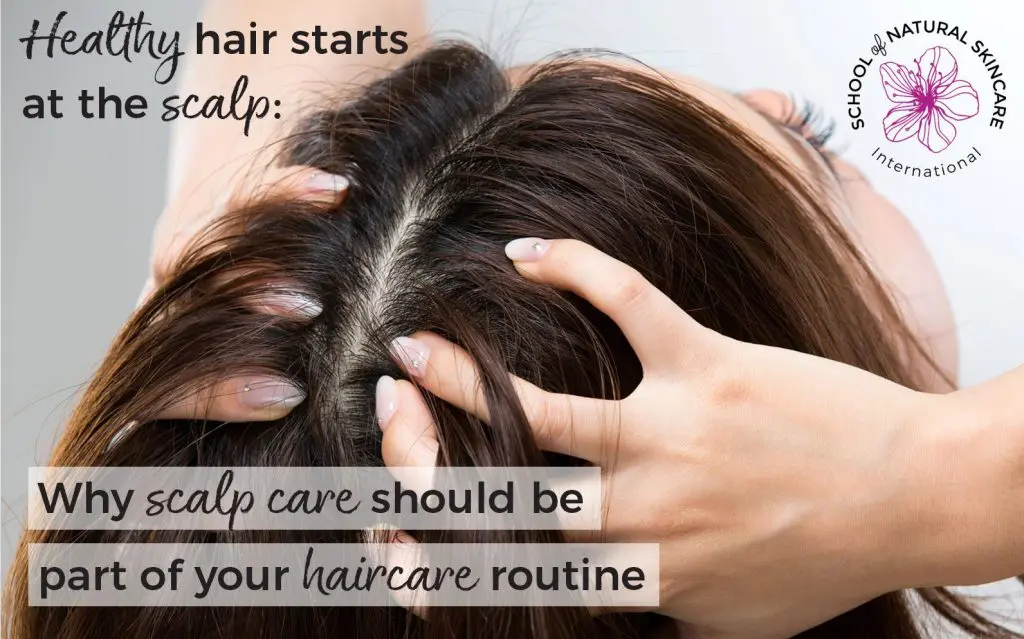Are you ready to start formulating your own haircare products?
Do you want to learn how to custom-craft shampoos, conditioners, and even hair treatments that work with your hair type, calm your crazy-frizzies, boost shine and moisture, and clean without damage?
If so, then there’s a few things you should know before you get started! We’ve collected our top ten list of things to consider before you start making your own haircare products.

#1: Be wary of online recipes.
Although many online sources offer DIY recipes with the very best of intentions, most of these recipes are unsafe and/or inefficient. Even if things look and sound very natural, or use familiar ingredients—even ingredients which you might recognize from skincare products many of these ingredients are not effective for cleaning or conditioning hair, and they can be very damaging to hair. You can find out more about how to spot unsafe DIY recipes here!
#2: Surfactants are your friends!
Surfactants are the ingredient that makes shampoo work. Before you even start to make haircare products, you will need to understand what a surfactant is, and how it works. They are the basis of shampoo formulations and a key ingredient in conditioners.
You will need to understand different classes of surfactants and their characteristics. This way the surfactants you choose will be compatible between each other and with other ingredients as well, and the product you make will be effective, safe and stable.
Without the knowledge of them, it’s almost impossible to create a good haircare product, but once you learn, you’ll open up a world of new formulation possibilities!
#3: Thickening agents are important.
Shampoos need the correct consistency for comfortable use; they can’t be water-like, or too runny. This is why you will need to understand thickening options for surfactant based products—whether you choose to use salt, natural gums, synthetic polymers, or another choice. Which one is the best choice for your ideal product?
#4: Hair is dead…
Before you start to make any haircare product, you need to understand the basic structure and function of hair itself. Hair—the strands we see above the scalp line—is dead. Unlike the skin that is made of living tissue, hair is made of dead cells, and doesn’t function like skin, or heal like skin does. You will need to know which ingredients to choose, and why to chose them, in order to create products that are beneficial for the hair.
#5: …but the scalp is alive!
On the other hand, the scalp is skin, and skin is alive! Granted, it’s a different type of living tissue than the skin on our bodies, and that means it has specific needs for health and treatment.
The skin on the scalp as well as the hair roots embedded in it are made of living cells. This means that you will need to know which ingredients are active in living tissues, and how to correctly incorporate them into haircare products.
#6: Oily hair can mean different things.
Many people speak of oily hair, dry hair, all kinds of different hair types and conditions. What do those things really mean? And why does hair get oily in the first place? Or oily in specific places, but dry in others? Hair can have mixed characteristics when it comes to oiliness levels. For example, a person with an oily scalp can have oily hair near roots and dry hair towards ends. Before you begin creating haircare products, understanding the function of natural hair oils can be absolutely essential.
#7: Most hair is a little bit damaged.
Most hair is damaged to a certain degree. This damage can originate from different stressors, such as chemical, mechanical, and environmental. To correctly formulate products for damaged hair, you will need to understand how different stressors damage the hair and what kind of care they need.
#8: Not all haircare products are suitable for all hair types.
If you’re someone with hair, then you probably know how true this one is! Even commercially-available shampoos, conditioners, and hair products do not work the same way on every hair type. Some hair requires a gentler touch, while others require deep, intensive cleaning. And creating conditioners that nourish the hair, and condition it without making it greasy, can be a big challenge. Understanding surfactants and other nourishing ingredients plays an important role in creating the best possible product, as does understanding the hair itself. With that knowledge, you can adjust your haircare formulations to suit a wide variety of hair types.
#9: Formulating haircare products at home is possible!
You don’t need fancy equipment or a professional lab. The ingredients can be purchased fairly easily and inexpensively.
All you need to learn is how.
Yes, there’s a bit of a learning curve when it comes to haircare formulation, but once you understand the techniques and theory, you can create so many amazing products.
#10: ….Just make sure you understand the theory and science first!
There is a world of difference between formulating skincare products and haircare products. You might be able to create an effective body butter or lip balm with no knowledge of cosmetic chemistry. But haircare products are different.
Understand the theory, get the basics right, then formulating haircare products is a lot of fun!
Free Training
Become a Natural Haircare Formulator
There are so many myths and mistakes online about haircare formulation—many of which can actually damage your hair.
Learn the professional way to formulate natural and organic haircare products with our free email training series.

Exclusive for our newsletter subscribers. Sign up now!
We look after your data in accordance with our privacy policy.
What you’ll learn:
- The essential ingredient you must include in a shampoo.
- Five natural shampoo recipes that won’t work and why.
- How to avoid SLS – and gentle, natural alternatives.
- The difference between making haircare products and skincare products.
- How NOT to make your own shampoo and conditioner bars.
Exclusive for our newsletter subscribers. Sign up now!




